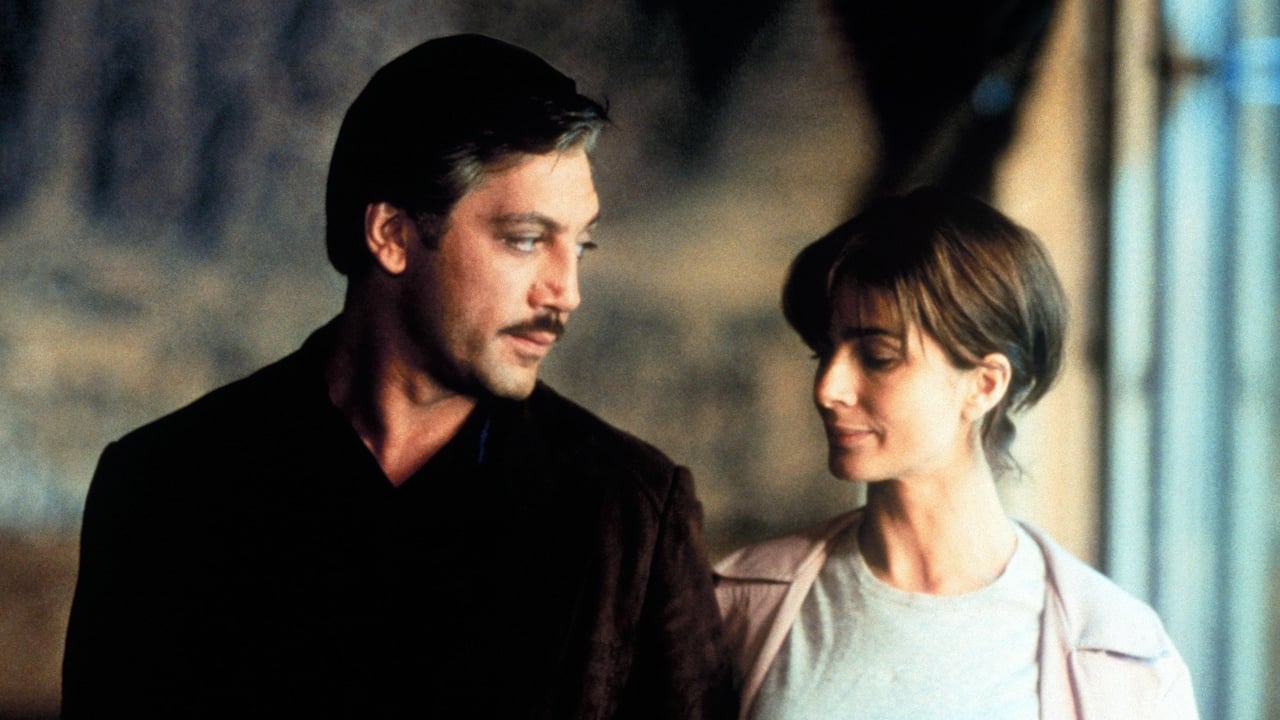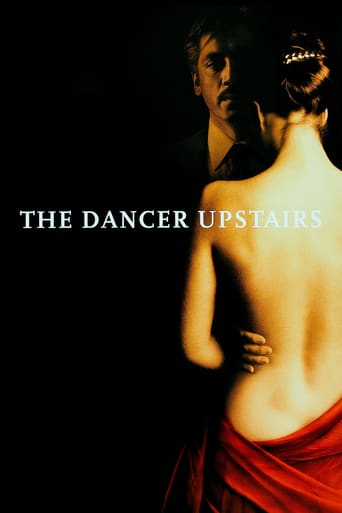

What makes it different from others?
... View MoreBrilliant and touching
... View MoreI think this is a new genre that they're all sort of working their way through it and haven't got all the kinks worked out yet but it's a genre that works for me.
... View MoreIt's simply great fun, a winsome film and an occasionally over-the-top luxury fantasy that never flags.
... View MoreI read a lot of reviews of this film, and only in a few places did I see any mention of a bizarre choice director John Malkovich made: it's set in Latin America, yet everyone speaks English with a Spanish accent. No reason is given for this, even by Malkovich himself in the DVD extras.I found this whole linguistic silliness disconcerting, jarring and disruptive, and it throws the film's credibility to the winds. I just cannot suspend disbelief when I see this on the screen. It rarely happens any more, and for good reason.It just makes no sense to have people speaking English with Spanish-and-Italian-inflected accents, while songs, newscasts, background chatter, newspapers and posters are heard and seen entirely in Spanish. It's a weird decision, and it flat-out sabotages the entire film. This kind of stuff used to be done routinely in the 1940s and 1950s with pretty laughable results (Nazis scheming to blow something up while they're all speaking to each other in sinister, cackling, heavily accented English).I'm not surprised by anything Malkovich does. He's a self-styled professional eccentric who has gained a reputation as a great actor, or perhaps artist, which is a term he would probably prefer. I've always been frankly puzzled about the buzz surrounding this guy. Down to his aristocratic, halting, midwestern (let's face it -- creepy) speech patterns, he's about as charismatic as a walnut.He's also a poster boy for pop culture's right wing, which used to be the property of people like Charlton Heston. He doesn't believe in extending time, patience or understanding for revolutionary left-wing movements, and he demonstrates it vividly in this film. I cannot help but feel that Malkovich, given his political stance, made this film as more of a statement than a work of art (which it isn't).The Dancer Upstairs is a sometimes intriguing film done in an often familiar American-style manhunt style. What's glaringly missing is any discernible background to the spectacular (and terrifying) rise of Peru's Shining Path movement (1980-92), upon which the film was based. Malkovich shows us instead a lot of footage about the hunt for the enigmatic leader of the group. Forget that the Maoist Shining Path gained so much popularity among the masses that it almost overthrew the government. If you want to know why they gained this popularity (and STILL do in some parts of Latin America), don't look to this film for answers. It's too busy with the Cult of the Personality (i.e. the leader of the group -- a solitary individual). Something very American about that. What you'll see here are a lot of crazed terrorists blowing things up real good, because, well, in Malkovich's eyes, all terrorists are crazy. End of story. I watched this movie because I'd walk across coals to see Italy's Laura Morante; both she and Spain's Javier Bardem are magnetic screen personalities. Morante is so sexy; she has a gorgeously sweet, emotive and VERY feminine face. She and Bardem team up very well here, despite more than a few lapses with dialogue that is stilted and unnatural (and for good reason: they're speaking in their second, third or perhaps even fourth language). To make matters worse, the dialogue is often American-style colloquial. Go figure. So many times, the spoken rhythms of the characters just fall flat on the screen.Not a bad movie, if you can concentrate on the visuals and the pacing and try to forget that you're supposed to suspend disbelief. Alas, it falls on its own linguistic sword, a victim of Malkovich's obsession with being different.
... View MoreWhy it had to be spoken in English? It should have been in Spanish...it just does not makes sense for all these actor to speak English...it loses the touch...and people from Spain do not like to watch movies in English...they dub it to Spanish...I can understand if Bardem is acting as a Spanish that speaks English in an English speaking cast...but here it just looks ridicules...Well, better luck next time...I think the movie could have been much better in Spanish... John Malcovich should have thought of this...perhaps he did but did not take it into consideration...If you do not understand Spanish it might fly by...otherwise you get bored with all the Spanish actor talking in English...see what is going on here...English - Spanish...Spanish - English...
... View MoreAll I want to know about this less than thrilling thriller is if animals were sacrificed in reality? Just the display of dead animals to convey the message of the show is unspeakably appalling. Further it incites abuse of defenseless creatures to others, to be disrespectful of animals is barbaric and unnecessary. Violence against women, children and animals renders most movies unwatchable and does not further plot development. It only shows a lack of creativity in writing and telling the story. A lack of subtlety isn't interesting, it's just extremely poor taste. I found no mention about "cruelty to animals" addressed in references to this film. Regardless it's inappropriate to display this kind of horror. Bad taste = bad movie.
... View MoreThe movie centers upon investigations to find a terrorist brain . The starring is Javier Bardem who makes an excellent interpretation , the support cast is good : Juan Diego Botto, Elvira Minguez ,Natalia Dicenta , among others .The yarn talks about Alberto Fujimori and his time . In 1990 is elected President of Peru. In 1992 carried out a state's coup and he ruled over steadily , fought against the terror and vanquished ¨Sendero Luminoso¨ terrorists and imprisoned to the chiefs . In 2000 he runs away to Japan framed of corruption as his assistant Montesinos . The flick specially deals with difficulty to discover the black hand to run the awful murders mostly placed on Ayacucho.In the film there are thriller , drama, action , suspense , love , but is a little bit boring . Direction by John Malkovich is slow-moving , Alberto Iglesias's music is nice but downbeat , Jose Luis Alcaine's cinematography is good . John Malkovich is better acting than filming.Rating : 6/10 average .
... View More